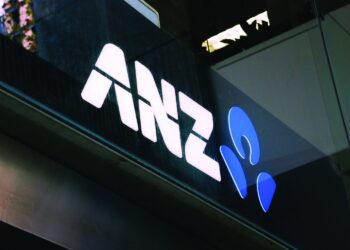The Reserve Bank of Australia (RBA) lifted the official cash rate by 25 bps to 3.85 per cent at its latest monetary policy board meeting — the 11th hike in 12 months.
In its post-meeting statement, the Reserve Bank said further tightening was needed to accelerate progress towards the inflation target of 2–3 per cent, despite evidence of sustained disinflation over the March quarter.
“Inflation in Australia has passed its peak, but at 7 per cent is still too high and it will be some time yet before it is back in the target range,” the board noted.
“Given the importance of returning inflation to target within a reasonable timeframe, the board judged that a further increase in interest rates was warranted today.”
The central bank made specific reference to services price inflation, which it said is “still very high and broadly based”.
The resilient labour market also weighed on the RBA’s decision, with the latest data revealing employment numbers increased by 53,000 in March — well above market expectations of 20,000.
“Many firms continue to experience difficulty hiring workers, although there has been some easing in labour shortages and the number of vacancies has declined a little,” the RBA observed.
However, the central bank acknowledged continued uncertainty over the outlook for household consumption — impacted by higher interest rates, cost-of-living pressures, and the previous decline in dwelling values.
This, the RBA has conceded, has contributed to a “substantial slowing in household spending”.
“While some households have substantial savings buffers, others are experiencing a painful squeeze on their finances,” the central bank noted.
Ultimately, the RBA expects “some further tightening of monetary policy may be required” to ensure inflation returns to target in a “reasonable timeframe”.
However, unlike last month’s statement, the RBA added a caveat, noting future determinations would “depend upon how the economy and inflation evolve”.
“The board will continue to pay close attention to developments in the global economy, trends in household spending, and the outlook for inflation and the labour market,” the RBA added.
“The board remains resolute in its determination to return inflation to target and will do what is necessary to achieve that.”
‘Substantial surprise’
The latest cash rate verdict has taken analysts by surprise, with the market largely expecting a second consecutive pause to the central bank’s tightening strategy.
Following last month’s meeting, the RBA said the pause would provide the board with “more time to assess the state of the economy and the outlook” amid “considerable uncertainty”.
Given last month’s tone shift, three of the big four banks anticipated a pause in May, with the Commonwealth Bank the only lender to correctly predict a 25 bps hike.
AMP Capital chief economist Shane Oliver had also expected a pause, but acknowledged a hike was highly probable.
Reacting to the central bank’s latest decision, Mr Oliver said he was concerned the RBA has “gone too far” and is “unnecessarily going to plunge [Australia] into a recession”.
“I mean, yes, inflation is too high, and there are upside risks to wages growth,” he told InvestorDaily.
“But by the same token, there’s a big tightening in the pipeline yet to fully feed through to the economy, and that’s going to cause a lot of pain through this year, particularly for households with a mortgage.
“So, I don’t think they’re allowing enough time to let lags or the lagged impact of past hikes show up.”
Mr Oliver went on to note a resumption of the hiking cycle came ahead of the release of the latest retail sales figures, which the RBA had flagged would influence its monetary policy strategy.
“The Reserve Bank indicated it wanted to assess the state of the global economy, labour market inflation, and retail sales,” he said.
“But we haven’t got an update of retail sales over that period [and] the inflation numbers we saw were actually better.”
“…So, I must admit that is a bit of a surprise. [I’m] a little bit concerned that they’re probably getting a bit too hawkish or moved too quickly.”
Mr Oliver also flagged the absence of any reference to the ongoing banking crisis in the United States, with Tuesday’s meeting coming just a day after US regulators confirmed the collapse of another banking institution — First Republic Bank.
“The bottom line is that each time this happens, more banks in the US will tighten their lending standards because they won’t want to go down the same path as these other banks,” Mr Oliver said.
“So, while you could argue there’s no full-blown crisis in the US and the authorities are mopping up the mess, it’s still going to lead to a tightening in lending standards, tighter monetary conditions, and weaker growth.
“So, I’m surprised they didn’t mention that, and I would have thought it is argument to be a bit more cautious.”
Paul Bloxham, HSBC chief economist, Australia and New Zealand, agrees, describing the RBA’s latest move as a “substantial surprise”.
“In short, changes to the RBA’s forecasts don’t seem to be able to explain today’s hike,” he said.
“The statement also does not indicate that any particular data surprise during the month triggered the choice to hike.”
Looking ahead, AMP’s Shane Oliver said he does not expect the RBA to action further hikes to the cash rate but acknowledged risks are “still well and truly on the upside”.







